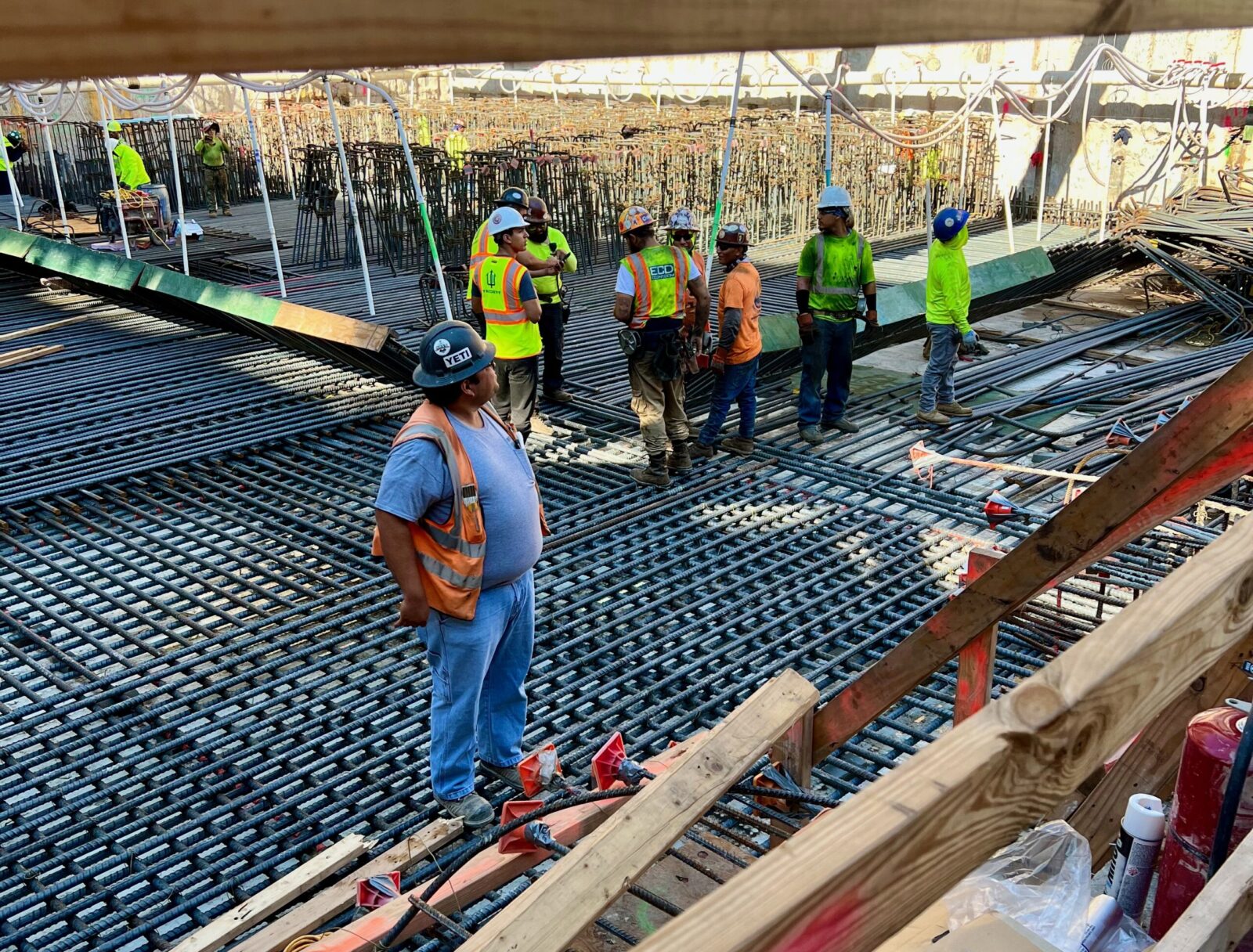Princeton partners with U.S. builders on mental health
U.S. builders are looking for ways to address high rates of anxiety, depression and suicide.

Crews install rebar at a New York construction site. – SkillSignal LLC
Key Takeaways:
- Construction safety tech company SkillSignal is working with Princeton University in New Jersey on addressing mental health struggles in the construction sector.
- The company won a one-year fellowship with the school to launch the Construction Wellbeing Initiative.
- They will study industry efforts to address mental health issues and evaluate their effectiveness.
The Whole Story:
Mental health struggles are impacting construction workers far beyond Canada’s borders.
A construction safety tech company was awarded a one-year fellowship with Princeton University to address the worsening mental health crisis in the sector. SkillSignal, a construction safety and compliance platform, is now asking the entire industry for its input.
Through Princeton’s Jay Sugarman Practitioner in Residence Program, SkillSignal is partnering with Princeton’s Kahneman-Treisman Center for Behavioral Science & Public Policy. The effort is called the Construction Wellbeing Initiative (CWI)
Princeton noted that studies from the Association of General Contractors (AGC) and the U.S. Department of Labor (OSHA) show rapidly growing numbers of clinical depression, anxiety, and burn-out among construction workers.
Moreover, frequent physical injuries and strains as a result of the nature of the work often result in spiraling alcohol and opioid dependence. This creates a situation where distraction, accidents, safety hazards, stress, injury, violence and death are more likely to happen. According to the Centers for Disease Control, construction has one of the highest suicide rates of all industries, at 53.2 suicides per 100,000 workers (CIASP).
“We started to uncover this mental health crisis that we have been plagued with through conversations with clients and statistics we dug up,” said Vivian Burgnon, co-founder of SkillSignal and We realized we were going into some dark territory coming out of the pandemic.”
She noted that while other industries shutdown during the COVID-19 pandemic, construction continued and workers put in long hours.
“We decided to take this on as a passion project and see what we could do,” she said. “We are a safety and compliance company and we felt like this falls under safety and protecting workers.”
The team is currently working on bridging some sort of mental health component into its digital platform.
This fall, Burgnon and SkillSignal’s other co-founder Sebastien de Ghellinck convened over 50 construction professionals at the School of Public and International Affairs in a full day of learning and sharing sessions. The event marked the launch of the Construction Wellbeing Initiative (CWI), combining academic and policy-focused resources from Princeton University, cutting-edge technology from SkillSignal, and the collective intelligence from construction professionals from every field: C-suite, risk management, safety, insurance, operations, training, and technology.
Joining the launch event were representatives from the Structure Tone Building Group, Turner Construction, Skanska, Gallagher Basset, AXA XL, Holt, Zurich NA, EW Howell, Consigli, P Agnes, The New York City Department of Buildings, Prosafety, and others.
Through the initiative, Burgnon and de Ghellinck are looking to understand the sources of this crisis, to compile industry experience, and analyze field-tested solutions that will increase the physical and mental wellbeing of construction workers on job sites around the nation. The team plans to publish a comprehensive online repository of these interventions, which could be used as a public resource available to anyone desiring to increase the physical and mental wellbeing of construction workers on job sites.
Burgnon explained that investing in the mental health of construction workers is critical for the construction sector which has a workforce already getting spread thin and more labour shortages on the horizon.
“Why go into the trades and put yourself through this stressful, hard job?” said Burgnon. “We are really seeing that if we don’t change the culture we have now there is going to be a domino effect and we won’t be able to keep up with demand.”
The issue hits close to home for Burgnon, who’s father has been a carpenter for more than 40 years.
“I’ve seen my dad go through the highs and lows of being in construction and on the flip side, my mother works in mental health as a counselor with a substance abuse background. I have that bridge between the two,” she said. “When we first started the company we always had the worker in mind to make sure they go home to their families the same way they came. We wanted to create technology that could better facilitate that. So when we started to get into these mental health stats, it was a no-brainer.”
Some of the next steps for the initiative are to begin gathering info on what actions the industry has taken to improve mental health for workers and evaluate what the best solutions are. The group plans to also hold regular meetings with construction leaders and stakeholders to get updates and hear from speakers.
Burgnon encouraged construction leaders in Canada to reach out with their own advice and programs here.

